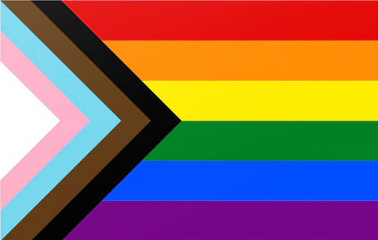Guilt and Regret
Guilt and regret are very powerful and are often misunderstood feelings. Guilt is the feeling that results when a person believes they have done something wrong. Regret is the desire to change something that has already happened.
After an abortion you may feel sad and bad and confused. These feelings of sadness and loss may be misinterpreted as guilt and regret through a process of faulty logic like this: If I chose to have the abortion and I feel sad and bad about it, it must have been the wrong decision.Therefore, I should feel guilty and regret my choice to have an abortion.
Having an abortion can be unusual circumstance for some people. You may feel very sad about your loss of the pregnancy and since you chose to have the abortion, you becomes both the sufferer of the loss and the person who caused the loss; this can lead an individual to emotionally beat yourself up. Guilt and regret are the weapons you use to do this.
It is helpful that a woman look realistically at why she chose to have an abortion. Often, this is the logic that is truer:
I chose to have an abortion. It is a loss. It was a difficult choice to make and I am very sad about it. I deeply regret that the situation wasn’t different. I wish I were in a time and place where I could have parented or placed a child for adoption. I made the best decision I could at the time with the resources that I had.
Let’s look at each of these compelling emotions separately.
Guilt
Guilt is the feeling that you have done something wrong. Feeling guilty after an abortion can happen for several reasons: You feel sad and disappointed that you didn’t live up to your own beliefs. You may believe that you disappointed someone else by not meeting their expectations. You may worry that you will be found out or punished. You may wallow in guilt as a self punishment. You may think you owe an emotional price for having had an abortion.
Although sometimes guilt has a positive outcome, it can be very harmful. Guilt may act as a temporary motivator for a person’s to change some part of their life; however, it is mostly draining, damaging and destructive.
Guilt is relational. That is, you can only feel guilty within a belief system that says what you did is wrong. When you are in the middle of emotional chaos, you cannot be objective, that is, you cannot see things from a higher place. If you give yourself some time and remembers why you made the decision you did, you may come to see your situation from a different perspective.
It can be difficult to move through guilt without some assistance. When we spend a lot of time in our own thoughts, we can drive ourselves crazy. If you are feeling guilty, seek out a helpful person: a friend, family member or a professional.
The Religious Coalition for Reproductive Choice (RCRC)
It is important to figure out exactly what you are feeling guilty about in order to move beyond the negative feelings. Try writing: I am feeling guilty because… Write as many answers as possible. You may write you feel guilty because: you have ended a life ~ you are selfish ~ you must suffer or you won’t be forgiven ~ you let yourself get pregnant ~ you pushed your partner away ~ you are guilty because you don’t feel bad about having an abortion.
Once you have identified why you are feeling guilty it can be helpful to remember why you made the decision to have an abortion. Try writing: I had an abortion because: It is important to keep in mind that all people have abortion for different reasons and often there are many factors that lead to an individuals decision to have an abortion; one reason is no less important than another.
Make sure your reasons are fairly concrete. It doesn’t help to write: I had an abortion because: I am a dork. You will only feel bad about yourself and will not gain any insight. This is where it can be helpful to have another person to talk with about your feelings.
Once you have recognized what is causing you to feel guilty then absolve yourself from it; find a way to forgive yourself.
Self-forgiveness will come in changing the way you think about yourself and how you treat yourself. Try following some of the coping after abortion tips. Think about healthy and constructive ways to channel your intense feelings, such as creating visual art, writing a poem or story or doing some volunteer work.
Rituals or ceremonies can be a constructive way to gain self forgiveness. You can use the following link to get an idea about what a forgiveness ritual looks like.
Only when you decides that you deserves forgiveness will you be able to move forward.
Negative self talk is common when a person experiences feelings of guilt. Changing the negative talk into positive talk will likely relieve negative feelings. Using positive affirmations can be an effective way to change the way a person thinks about their abortion decision.
Regret
We often overuse or misuse the word regret. If you are saying I regret having an abortion, make sure you are not confusing regret with sadness about one of the many losses you may be feeling. Any feelings of sadness and loss need to be recognized and grieved. If you identify some of the losses you are is feeling you will better be able to cope with these strong feelings.
It can be frightening if you are experiencing emotions that are more intense than you expected. Sometimes when we are feeling confused and sad or guilty we use the term regret, because we don’t know how to cope with such intense emotions. It is easier to say if I had never had an abortion, I wouldn’t be feeling this way now rather than dealing with the feelings. (This intensity is a sign you should be talking to a friend or counselor).
True regret is when you wish you had made a different decision even if placed in the exact same circumstances in the exact same place and time. People make the decision to have an abortion based on many inter-related factors (ex: poverty, single parenthood, relationship break-up, family violence, etc) Often the situation and circumstance around the pregnancy are the main factors that influence an individuals to choose abortion. It is important to remember that situation and circumstance are sometimes unchangeable no matter how much we wish they were different.
There are many reasons why you might feel regretful after having an abortion. You may feel: ~ you didn’t live up to your own beliefs and values ~ weak for not wanting to give birth or place a child for adoption ~ you didn’t have all the information you needed at the time to make a decision.
To ease regret or help to avoid this kind of thinking, try writing a letter to yourself and then putting it away to look at later if needed. In the letter describe the circumstances you were in and the reasons you chose to have an abortion. Write a little bit about how you are feeling and who you have shared with or not and why.
As time passes after an event, for good or bad, our memories fade. It is easier to look back on a situation and recreate it for our own purpose now, than to remember it accurately. If you write a letter close to when you had the abortion, you can put it away to read later if needed. This way you’ll be able to remember what you were going through at the time you made this decision.
Regret is a powerful weapon in hurting yourself, but other than that, it truly serves no useful purpose. A person can regret something forever and that doesn’t change a thing. All this will do is keep you stuck in the past, unable to move forward, feel joy and learn from your experience.
It can be much harder to let go of regret than to hang on to it. A person who learns to let go of their regret can turn that self-destructive energy into more constructive pursuits: art of all forms, volunteer work, nurturing others and themselves.
Experiencing intense emotions after an abortion can sometimes mean that the feelings surrounding the abortion have reopened old emotional wounds. A person who can identify where their feelings are coming from can gain insight into their life and how they can change things to feel better about themselves. As difficult as it can be, use this as an opportunity to learn and grow rather than to stay stuck and depressed.
If you are experiencing intense feelings, of regret or other emotions, talk to a counselor. These feelings can be very difficult to cope with and you don’t need to do it alone. When you are having these intense feelings, try to stop your thinking and repeat: “I am only human. I am doing the best I can.”
Be kind and gentle with yourself; show yourself compassion.


